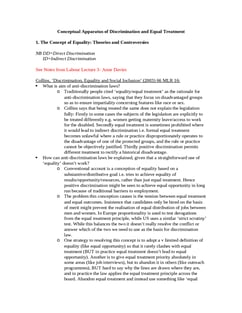Falconer v ASLEF [1986] IRLR 331
Judgement for the case Falconer v ASLEF
Table Of Contents
Plaintiff, a passenger, had bought a rail ticket which he was prevented from using because of industrial action.
He sued the union for expenses incurred as a result (statutory protections didn’t apply since the unions were striking without a ballot).
Henham J
Held that Defendant's knew of the existence of contracts between British Rail and passengers who had already purchased tickets at the time the strike was called, and they intended to interfere with the performance of such contracts by inducing British Rail employees to withdraw their labour.
The interference with the performance of the contract between Plaintiff and British Rail was a necessary consequence of the Defendant's actions and therefore they were liable to him for damages.
For Further Study on Falconer v ASLEF
Need instant answers? Our AI exam tutor is here to help.
Ask questions 🙋 Get answers 📔 It's simple 👁️👄👁️
Our AI is educated by the highest scoring students across all subjects and schools. Join hundreds of your peers today.
Get StartedSimilar Cases
Related Product Samples
These product samples contain the same concepts we cover in this case.
| Labour Law | Industrial Action Notes (19 pages) |

 Since 2010, Oxbridge Notes has been a trusted education marketplace, supplying high-quality materials from top achievers at universities like Oxford, Cambridge, LSE, Harvard, and Yale.
Since 2010, Oxbridge Notes has been a trusted education marketplace, supplying high-quality materials from top achievers at universities like Oxford, Cambridge, LSE, Harvard, and Yale.